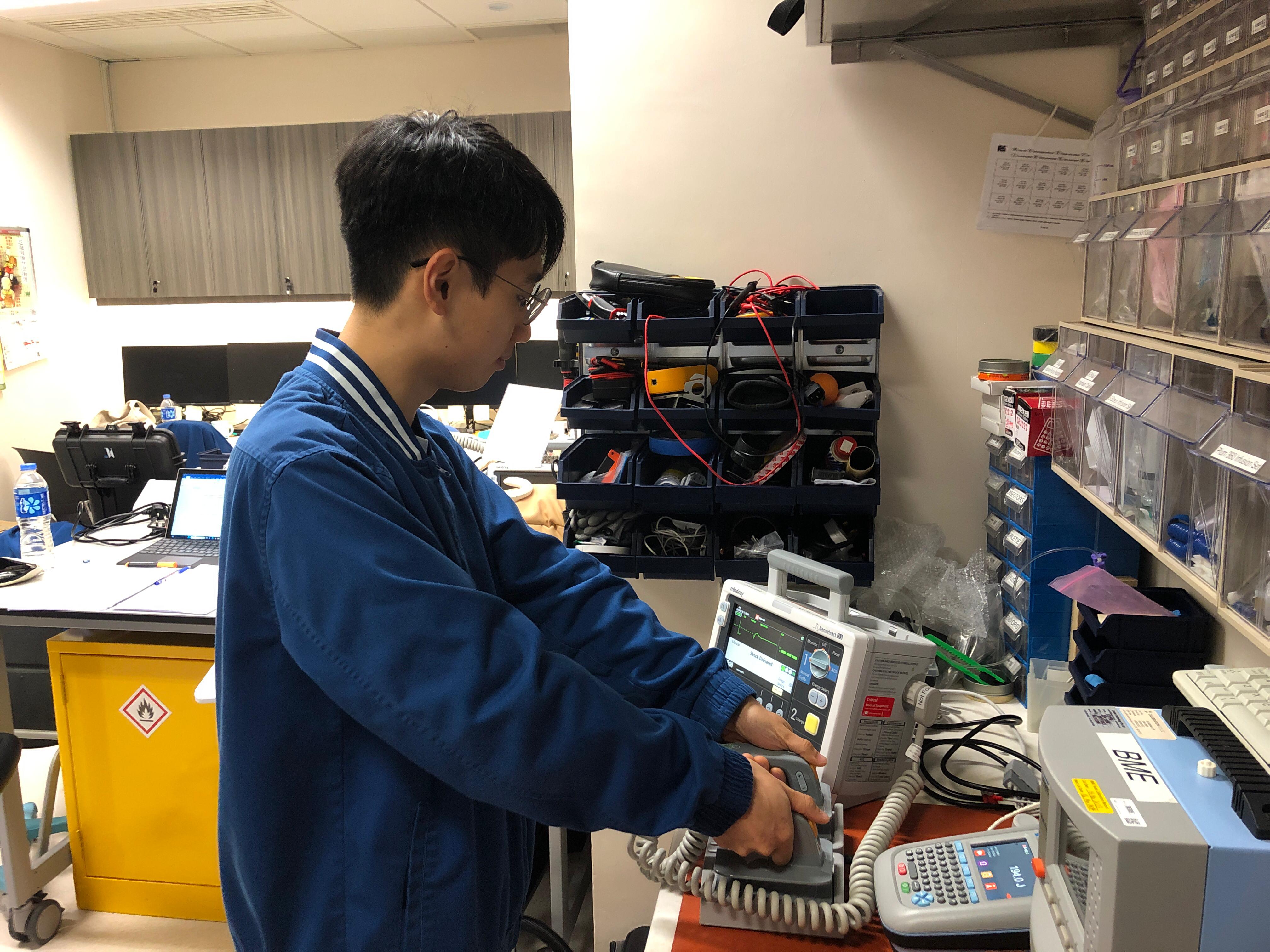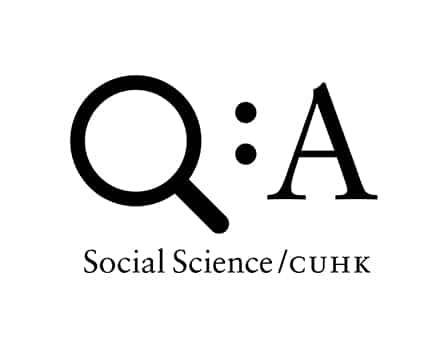When Moldir Shyngys first applied for her biomedical engineering degree at The Chinese University of Hong Kong (CUHK), she faced an interesting question. The professors asked her, “What do you think makes biomedical engineering different from regular engineering or life science majors?”
Shyngys answered, “Biomedical engineering embraces almost all sciences – physics, mathematics, chemistry, and most importantly, biology. It’s not just acquiring knowledge from these areas, but also doing actual things, such as constructing medical equipment.”
Her answer turned out to be correct. Upon joining CUHK’s Department of Biomedical Engineering, Shyngys was immediately immersed in all aspects of biomedical engineering, building a solid foundation in physics, anatomy, and physiology right in her first year. “I gained a priceless experience through summer training in hospitals, medical device companies, and various university laboratories,” she shares.
Like Shyngys, thousands of talented individuals come from countries such as Australia, India, Japan, Thailand, the US, the UK and more to Hong Kong every year. It’s a favourite destination for international students as Hong Kong is home to many of Asia’s top 10 universities, where both English and Chinese are official languages, and a melting pot of Eastern and Western cultures.
Beyond campus, there’s always something to do in this skyscraper-filled, dynamic Asian city: explore its picturesque countryside, get inspired by its cosmopolitan communities, leverage the super global, regional, and local links to China, and so much more.
With this many global connections and enriching opportunities, Hong Kong is the place to be. Johnny Pang, who completed his undergraduate programme in 2020, can attest to this. “My university life at CUHK studying biomedical engineering was full of joy,” he says. “I really enjoyed studying this programme as it provided me with a solid foundation in biomedical science and engineering.”

Biomedical engineering is expected to significantly enhance the future of healthcare services. Source: The Chinese University of Hong Kong
Such experiences are common here. The university is ranked first in Hong Kong and 11th globally for Biomedical Engineering, according to ShanghaiRanking. Pair this with multiple professors listed among the World’s Top 2% of the Most-cited Scientists 2024 by Stanford University, and students from Hong Kong, South Korea, Kyrgyzstan, Bangladesh, and more, and it’s easy to see why many students love their time here.
International students are drawn to Hong Kong for several compelling reasons. The city offers world-class education, with many universities ranked among the top 10 in Asia, including three institutions that are ranked within the top 50 globally by Quacquarelli Symonds, as highlighted on Study in Hong Kong’s “Universities and Higher Education” page.
What’s more, Hong Kong is a unique blend of Eastern and Western cultures, where both English and Chinese are official languages, making it an inviting environment for international students (Living in Hong Kong). The modern, dynamic cityscape features a “skyscraper-filled skyline interspersed with picturesque countryside” (Why Hong Kong), while its position as a gateway to China provides exceptional connectivity. Meanwhile, the cosmopolitan communities offer diverse, horizon-broadening perspectives, further enriching the student experience (Student Voices).

Source: Study in Hong Kong
A global, unique, and interdisciplinary education
The department is a leader in biomedical engineering and healthcare education. Pursuing a programme here will ensure you come away with the knowledge and practical acumen to navigate the rapidly growing healthcare field. Various topics, from engineering mathematics, to human anatomy and physiology, give students an acute understanding of how modern science and technology can make populations healthier.
A highlight of the programme is its interactive learning experiences. You’ll be required to participate in a four-week professional and practical summer training on CUHK’s main campus and at Prince of Wales Hospital (PWH) and CUHK Medical Centre (CUMC) as part of the undergraduate programme. This means in-house training from qualified professionals and learning to use cutting-edge equipment – you’ll dabble in electronic circuit design, simulation, fabrication, interfacing with software, data acquisition, and wireless communication.
Of course, hospital training is an essential part of the experience too; you’ll witness daily operations and information processes, and learn the fundamental and clinical use of medical instruments. All provide a valuable chance for students to relate theory and engineering knowledge to practice in a real-world setting.
Student experiences
“In CUHK, there are many opportunities for students to explore interests, such as internships, lab exposures and site visits,” says Ricky Leung, a student from the undergraduate programme. “Apart from campus learning sessions, hospital visits made me understand how biomedical engineering plays a major role in improving patient care and helping health professionals deliver better and more precise treatments. Through these exposures, I could try different options and decide what fits me the best.”
Many others share similar sentiments. Another student who enjoyed the department’s many practical opportunities is Choi Hok Yee. “We have courses to learn about hospital work, and even entered the operation room to learn the principles of machines used during surgery,” he says. “Last year, I joined the Lab Exposure Programme to experience working in a lab; I’ve learned a lot, such as daily lab routines and preparation work.”
Those who love exploring different facets of the field will naturally fit into the BME department from day one. Shyngys is one of them. “During my first year of study at CUHK, I have already established a solid foundation in physics, anatomy and physiology,” she says. “Moreover, I gained a priceless experience through summer training in hospitals, medical devices companies and various university laboratories.”
International opportunities
Exciting global opportunities equip students with new perspectives and enhanced professional competencies. International internships and exchange programmes are great ways to hone one’s communication and critical thinking skills, which are crucial to any job today. Just ask Anson Li Szehon, who was part of the undergraduate programme when he travelled to Singapore for an exchange with Nanyang Technological University in Singapore.
“I could discuss the potential application of the latest technology on tissue engineering with students from all over the world,” he says. “The experience is definitely invaluable. I would like to encourage all undergraduate students to join exchange programmes here as they bring unique and irreplaceable experiences.”
Graduates go on to thrive in diverse sectors including hospitals, universities, government agencies, public organisations and various industries. Some stay in academia, like Dexter Wong Siu Hong, who joined CUHK’s undergraduate programme in bioengineering back in 2015. Several years later, he’s a graduate of CUHK’s doctoral programme, and joined Hong Kong Polytechnic University in 2020 as a research assistant professor to pursue further research.
“During my time at CUHK, I actively joined hands-on experimental work and projects to enrich my practical skills and experience – that’s how I developed an interest in academic research,” says Wong. “The biomedical engineering department encouraged us to participate in overseas exchange activities to enhance our international perspectives and discover potential inter-collaboration among universities.”
He’s not the only one with a bright outlook. Tommy Chung Pui Wo joined Celki VitalAire, a leading provider of respiratory care, as an assistant service engineer upon graduating from CUHK, where he manages the services of sleep laboratories in public and private hospitals. “I was intrigued by exposure to sleep stage scoring since I could apply what I learned in neuro-engineering,” he says. “I’m glad to have the opportunity to contribute to diagnosing and curing patients with sleep apnea.”
Career outlook
Bright career prospects await BME graduates. With greater demand for better medical devices to address our ageing population and health issues, the field is growing much faster than the average for all occupations. From engineering and product support to lab and research work, roles span wide and across the private and public sectors.
CUHK BME graduates hold positions in manufacturing industries, become clinical engineers in hospitals, work in medical sales and marketing for biotech brands like Johnson & Johnson, and so much more. Others join laboratories and become research scientists or pursue further studies in Hong Kong or overseas in prestigious universities.
Follow the Department of Biomedical Engineering on Facebook, X, Instagram, and YouTube.











